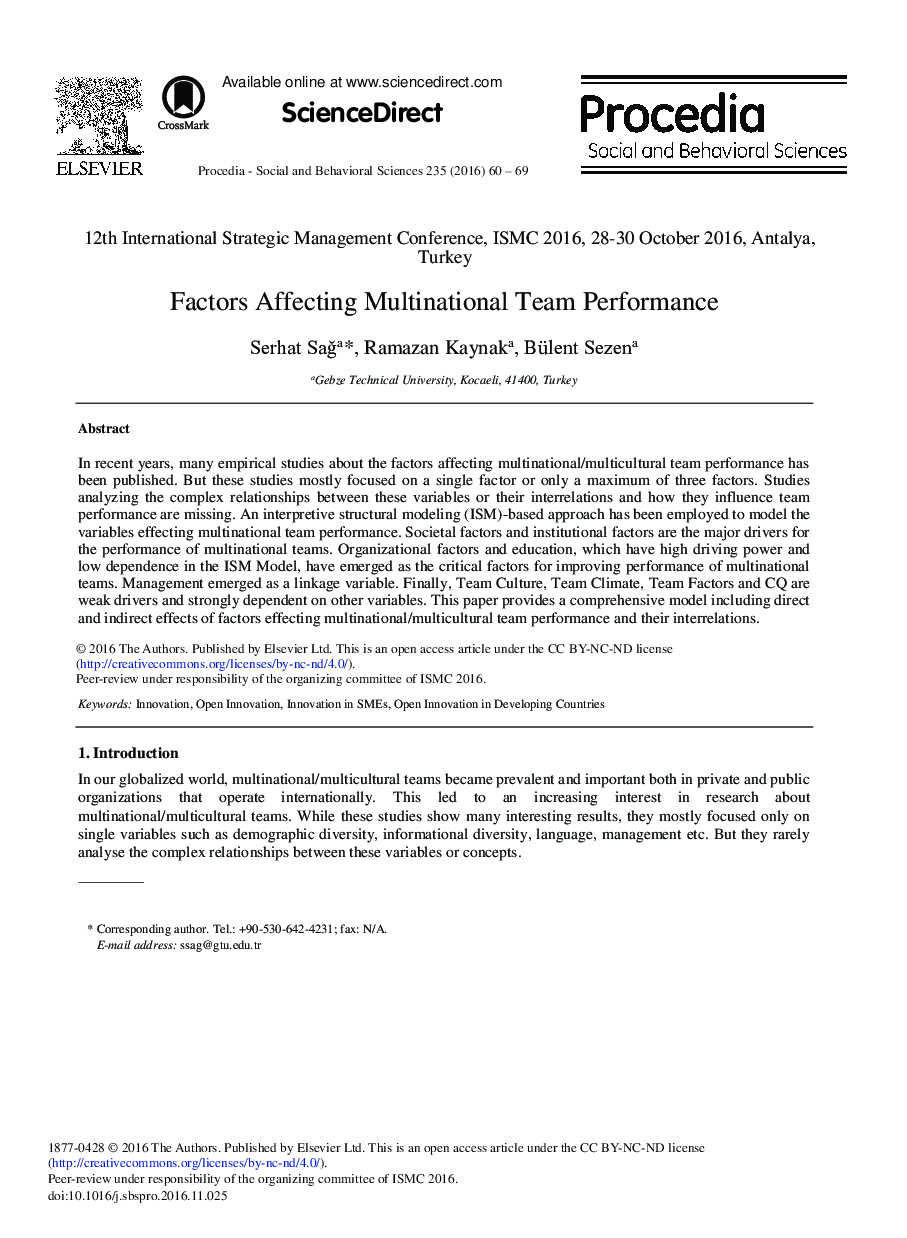| Article ID | Journal | Published Year | Pages | File Type |
|---|---|---|---|---|
| 5126032 | Procedia - Social and Behavioral Sciences | 2016 | 10 Pages |
In recent years, many empirical studies about the factors affecting multinational/multicultural team performance has been published. But these studies mostly focused on a single factor or only a maximum of three factors. Studies analyzing the complex relationships between these variables or their interrelations and how they influence team performance are missing. An interpretive structural modeling (ISM)-based approach has been employed to model the variables effecting multinational team performance. Societal factors and institutional factors are the major drivers for the performance of multinational teams. Organizational factors and education, which have high driving power and low dependence in the ISM Model, have emerged as the critical factors for improving performance of multinational teams. Management emerged as a linkage variable. Finally, Team Culture, Team Climate, Team Factors and CQ are weak drivers and strongly dependent on other variables. This paper provides a comprehensive model including direct and indirect effects of factors effecting multinational/multicultural team performance and their interrelations.
